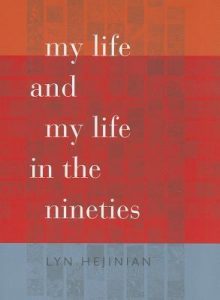You might have guessed, reading was a very important part of my upbringing and the holidays were no exception. Besides the requisite viewings of whatever interpretation of A Christmas Carol we were ready for that year, I always remember my dad reading aloud to us on Christmas Eve. It’s a tradition I brought with me as I made a new home in Seattle.
The Gift of the Magi
“One dollar and eighty-seven cents. That was all. And sixty cents of it was in pennies. Pennies saved one and two at a time by bulldozing the grocer and the vegetable man and the butcher until one’s cheeks burned with the silent imputation of parsimony that such close dealing implied. Three times Della counted it. One dollar and eighty-seven cents. And the next day would be Christmas.” – “The Gift of the Magi” by O. Henry
So this year, as in all the years past (and future?), I will be snuggled up by our tree with some cider reading aloud to my husband. The set list hasn’t even varied. I’ll start with O. Henry’s “The Gift of the Magi” and weep my eyes out. The “the uneventful chronicle of two foolish children in a flat who most unwisely sacrificed for each other the greatest treasures of their house” has always touched me very deeply and every year I better understand how wise Della and Jim were in their love and their sacrifice.
Christ Climbed Down
“Christ climbed down
from His bare Tree
this year
and ran away to where
no intrepid Bible salesmen
covered the territory
in two-tone cadillacs
and where no Sears Roebuck creches
complete with plastic babe in manger
arrived by parcel post
the babe by special delivery”
– “Christ Climbed Down” by Lawrence Ferlinghetti
Once I’ve somewhat recovered, I’ll pull out Lawrence Ferlinghetti’s A Coney Island of the Mind, turn to page 69, and read “Christ Climbed Down.” In the twinkling light of our (natural) tree, I’ll think about what’s important to me about the holiday. I wasn’t raised with religion (although I dragged my mom to a different church every Christmas and Easter), so I don’t really have a relationship with the Baby Jesus (even though I display a creche every year). That makes it especially important for me to question my relationship with the commercial Christmas and Ferlinghetti’s poem is the perfect start.
I’m missing my “clever cornball relatives” already.
Regardless of how you spend the holidays (and which holidays you celebrate), I hope the coming days find you snug and surrounded by love. And if your holiday traditions involve books, I’d love to hear about your favorites in the comments.
 A couple of weeks ago, I was talking with a friend about our mutual interest in Buddhism. She recommended I read Radical Acceptance: Embracing Your Life With the Heart of a Buddha and I asked if she’d read the works of Thích Nhất Hạnh. We agreed that neither of us really understood him, but I said what I like most about his work is precisely that I don’t understand it and that every time I re-read one of his books, I take from it what I need that day, regardless of what’s on the page. That’s how I felt reading My Life and My Life in the Nineties by Lyn Hejinian.
A couple of weeks ago, I was talking with a friend about our mutual interest in Buddhism. She recommended I read Radical Acceptance: Embracing Your Life With the Heart of a Buddha and I asked if she’d read the works of Thích Nhất Hạnh. We agreed that neither of us really understood him, but I said what I like most about his work is precisely that I don’t understand it and that every time I re-read one of his books, I take from it what I need that day, regardless of what’s on the page. That’s how I felt reading My Life and My Life in the Nineties by Lyn Hejinian.